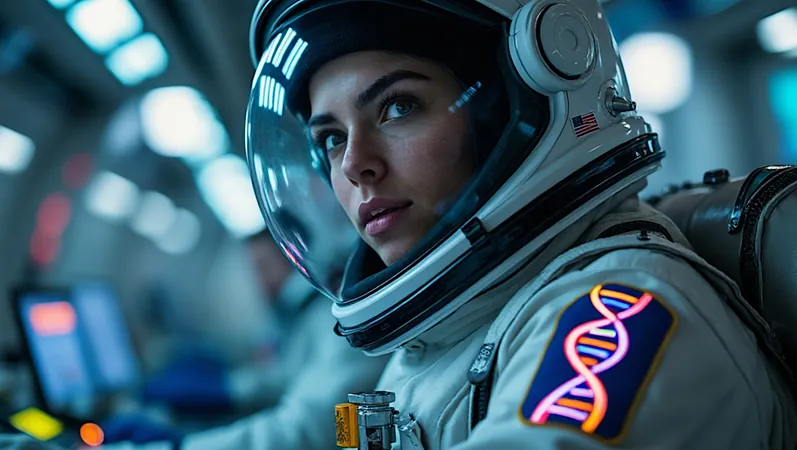
NASA's Breakthrough Technologies for Space and Health: The Future of Kidney Stone Management in Space!
2024-11-27
Author: Mei
Introduction
In an exciting development in space medicine, NASA-backed technology named "Stone Clear," developed at the University of Washington, has recently received FDA clearance. This innovative device employs ultrasound technology to aid in repositioning kidney stones from the ureter or kidney, potentially revolutionizing health care both in space and on Earth.
Break Wave Technology
This significant milestone also includes its sister technology, "Break Wave," which is currently undergoing pivotal trials aimed at breaking kidney stones in awake patients. These advancements are particularly vital given the increased risks of kidney stones among astronauts during prolonged space missions.
Cognitive Performance Study
The importance of maintaining astronauts' health continues to be underscored by a new study titled "Cognitive performance in ISS astronauts on 6-month low earth orbit missions," published in Frontiers in Physiology. The research highlights how extended stays aboard the International Space Station (ISS) can impact the cognitive function of crew members. These findings are a part of a larger body of research focused on understanding and mitigating adverse effects on human health during long-term space missions.
Cardiovascular Health Research
Meanwhile, a study published in JAMA Cardiology investigates heart health under zero gravity, focusing on the effects of external constraints on cardiac hemodynamics in patients with heart failure. This research may have far-reaching implications for the understanding of cardiovascular health in space, especially for astronauts with pre-existing conditions.
Open Science Initiatives
NASA's commitment to open science has also culminated in the establishment of an open science data repository aimed at promoting collaborative research on life in space, reflecting a push towards transparency and greater accessibility in scientific endeavors.
Biological Processes in Microgravity
Among other notable papers is a striking exploration into how simulated microgravity environments inhibit vital biological processes, such as matrix mineralization during osteoblast to osteocyte differentiation. The implications of such research are profound, touching upon bone health management for astronauts who will spend significant time in microgravity during lunar and Martian missions.
Brain Function Research
Lastly, an intriguing study assessing brain function after 240 days of confinement under simulation conditions outlines the challenges associated with long-duration spaceflight. By investigating physiological and biochemical changes, this research paves the way for better understanding human resilience in extreme and isolated environments.
Conclusion
As we inch closer to long-duration missions beyond Earth, the culmination of NASA's research and development efforts is leading us toward a future where the health and wellbeing of astronauts are safeguarded, ensuring that space exploration remains a safe frontier for all. Stay tuned for more groundbreaking discoveries that will shape the future of human spaceflight!

 Brasil (PT)
Brasil (PT)
 Canada (EN)
Canada (EN)
 Chile (ES)
Chile (ES)
 España (ES)
España (ES)
 France (FR)
France (FR)
 Hong Kong (EN)
Hong Kong (EN)
 Italia (IT)
Italia (IT)
 日本 (JA)
日本 (JA)
 Magyarország (HU)
Magyarország (HU)
 Norge (NO)
Norge (NO)
 Polska (PL)
Polska (PL)
 Schweiz (DE)
Schweiz (DE)
 Singapore (EN)
Singapore (EN)
 Sverige (SV)
Sverige (SV)
 Suomi (FI)
Suomi (FI)
 Türkiye (TR)
Türkiye (TR)